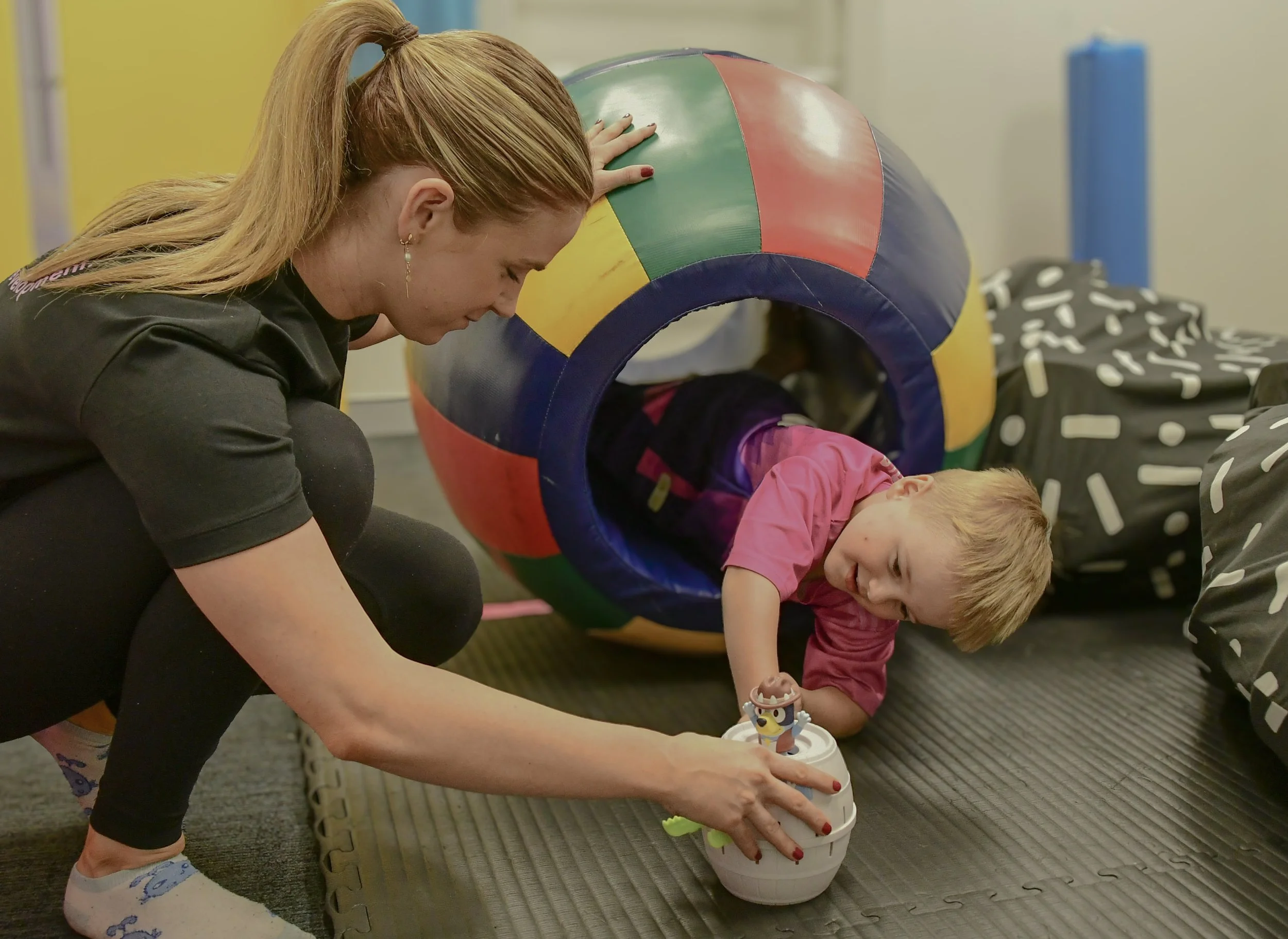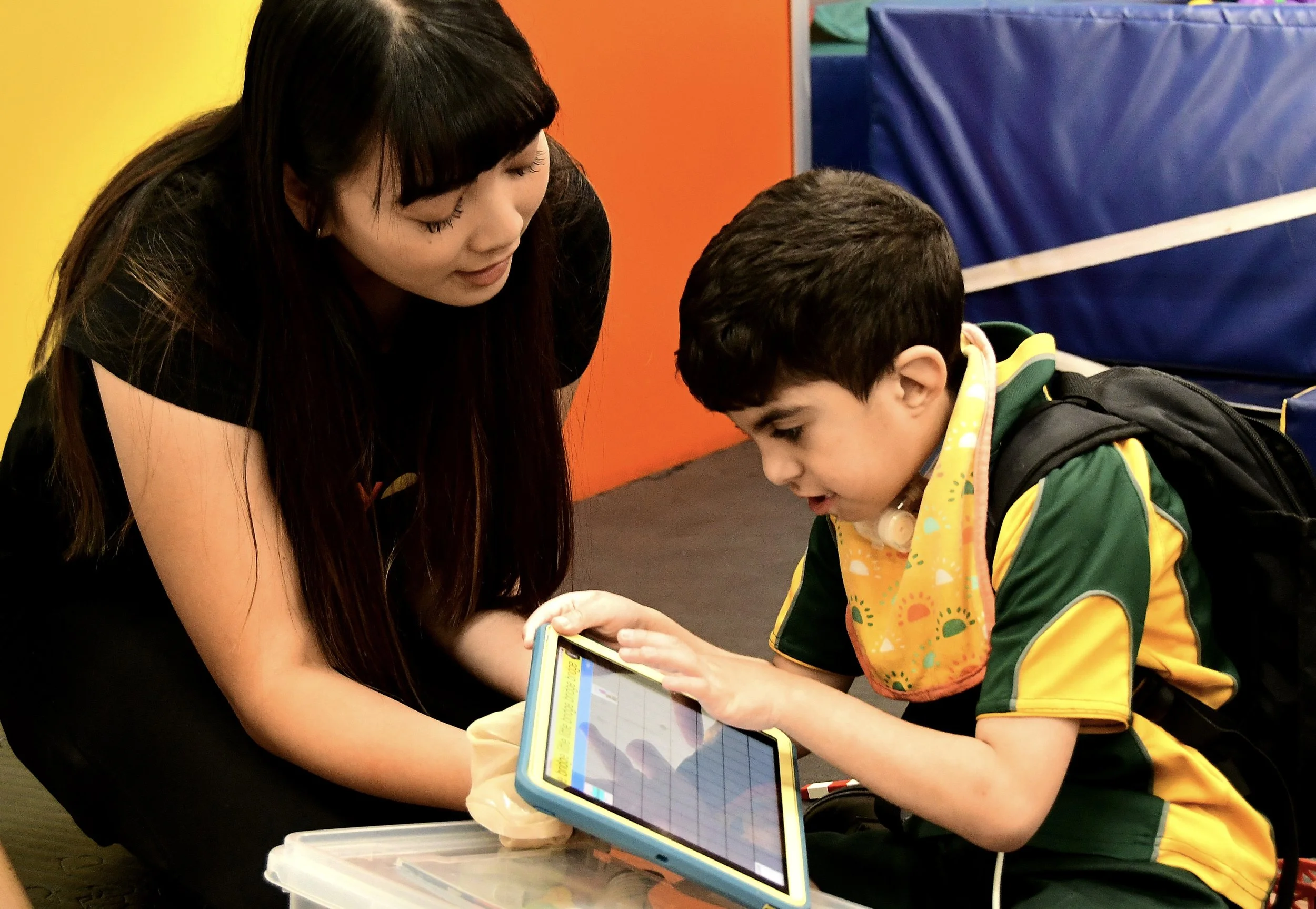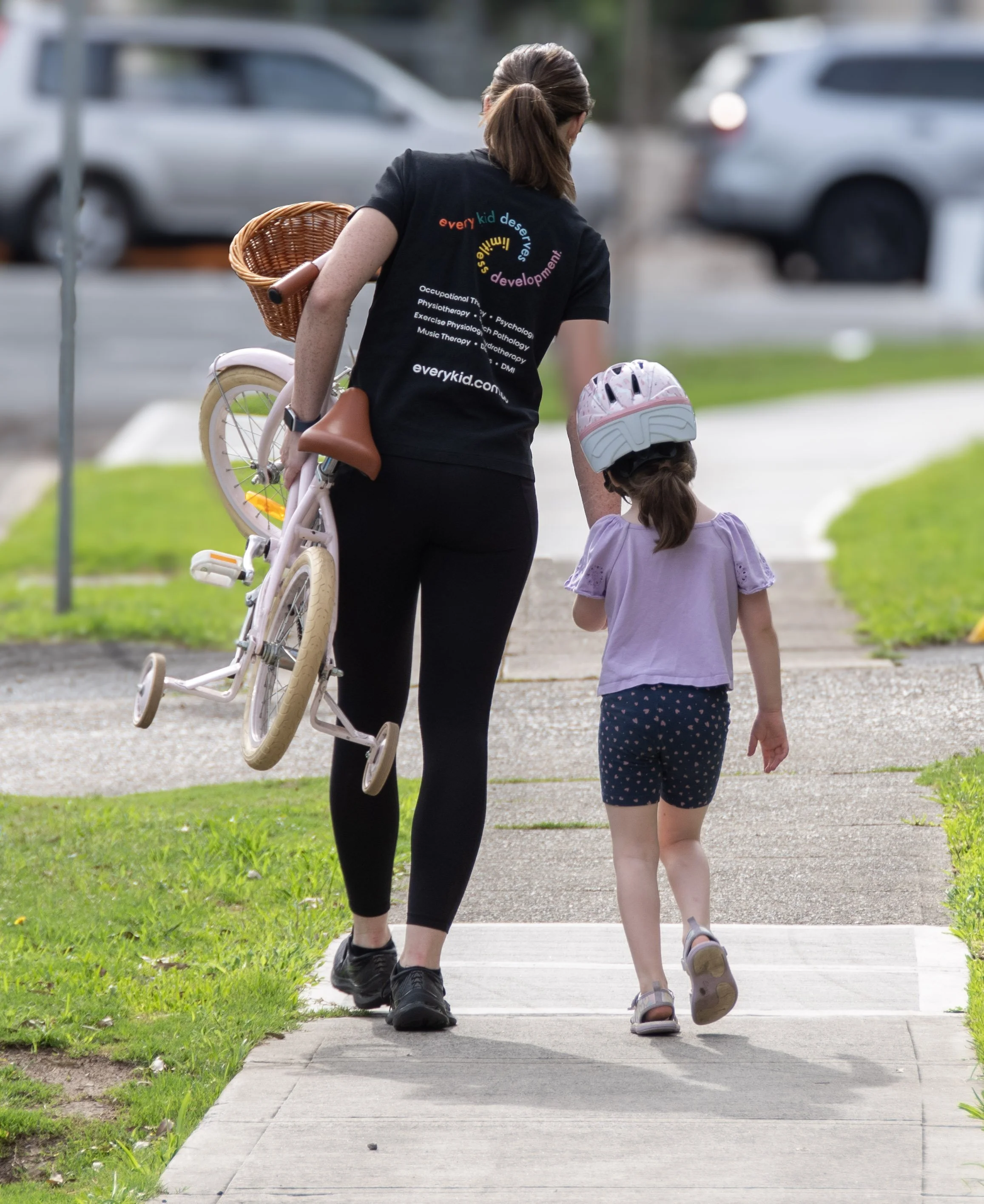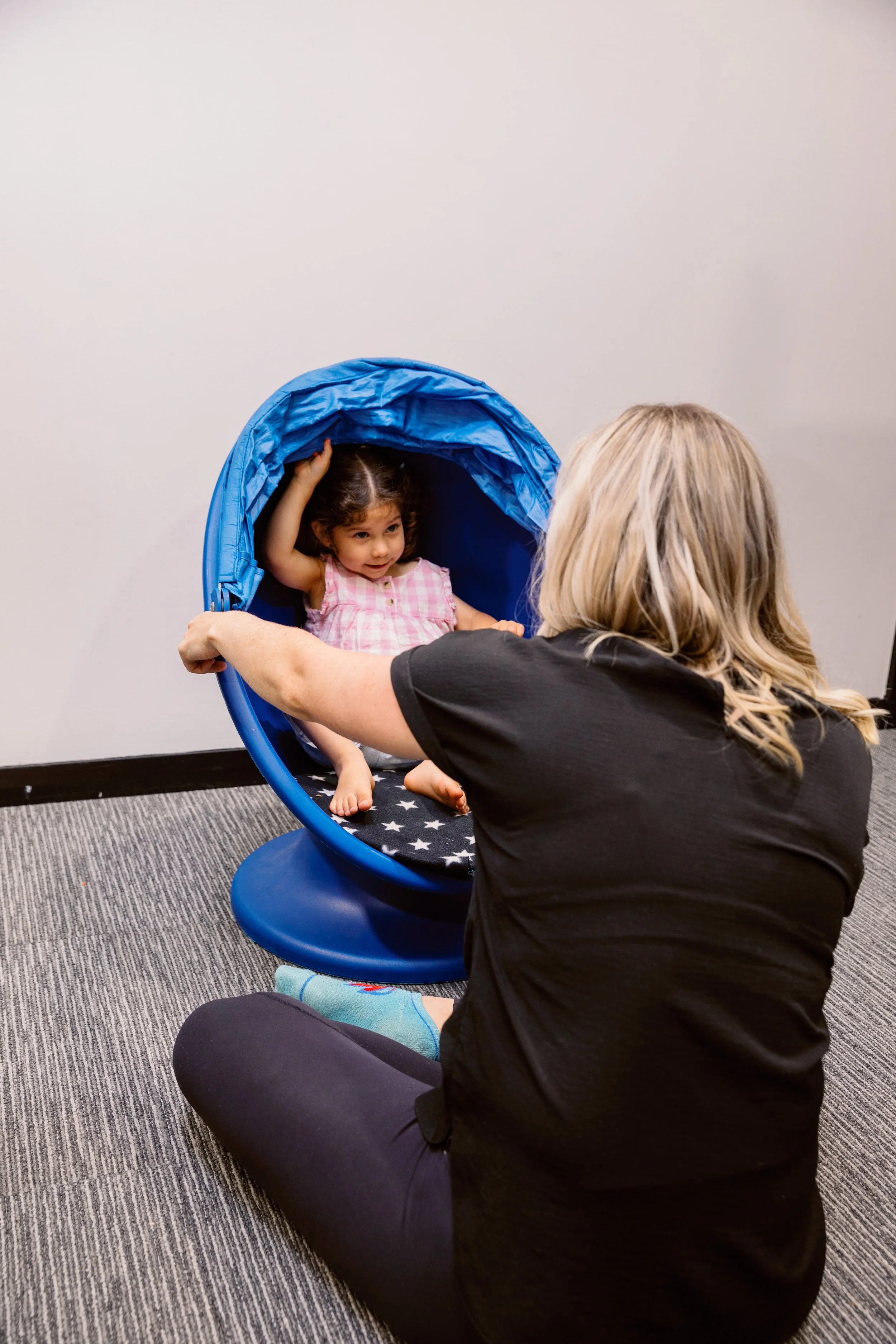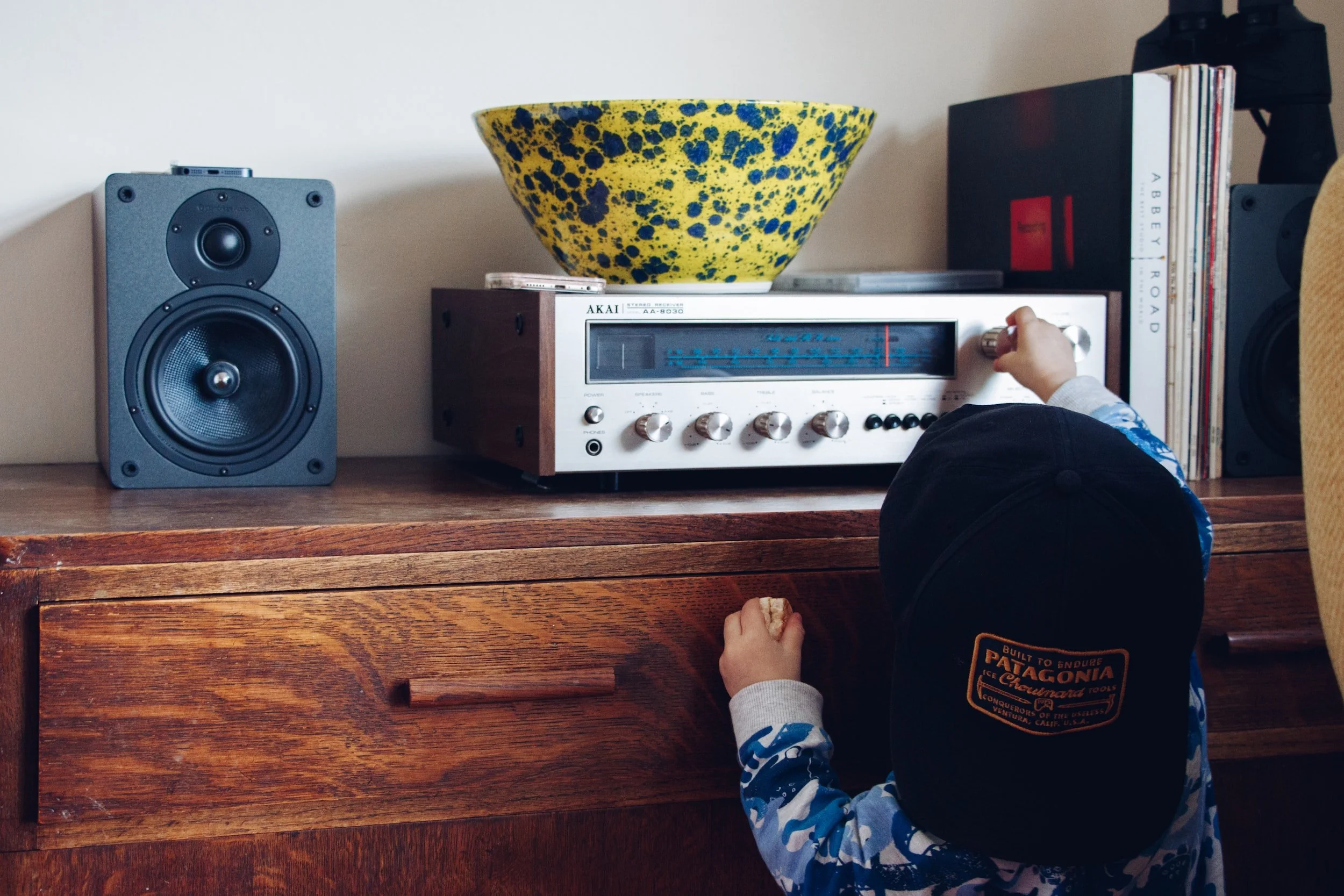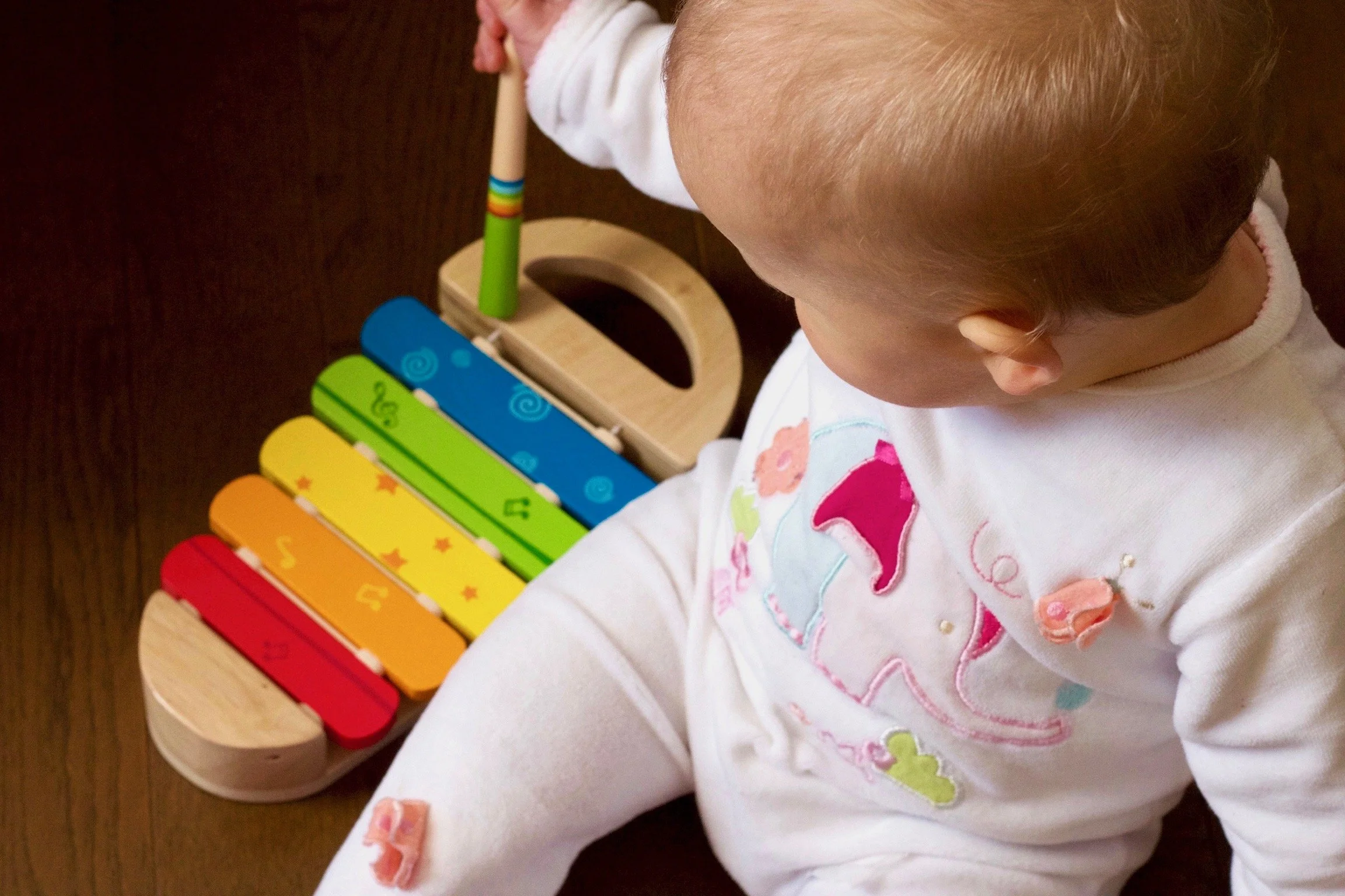Book Now
Book an appointment with an EveryKid Therapist today through our online booking or request form.
We’ll email your intake form—just fill it out within 24 hrs (or 1 hr for same-day).
For home visits, multiple bookings or help finding a time—just call or send a request.
-
Our Paediatric Occupational Therapists (OTs) help children with:
✔ Early intervention support
✔ Emotional regulation
✔ Executive functioning
✔ Upper limb retraining for Cerebral Palsy
✔ Delayed milestones
✔ Fine motor skills
✔ Bimanual and Constraint Induced Movement Therapy (CIMT)
✔ Social skills
✔ Sensory integration / vestibular training
✔ Activities of Daily Living (ADL) & self care
-
Our paediatric Speech Therapists help children with:
Swallowing, drinking and feeding difficulties
✔Late to talk / language delays
✔ Key Word Sign (KWS)
✔ Childhood Apraxia of Speech (CAS)
✔ Autism Spectrum Disorder (ASD) Gestalt Language Processors
✔ Hanen Program
✔ Stuttering and articulation impairments
✔ Oral motor dysfunctions
✔ Social skills
✔ Literacy delays
✔ Use of augmentative communication
✔ Feeding therapy
✔ Sensory informed approach (SOS)
✔ Oral motor approach
-
Our Paediatric Physiotherapists help children with:
✔ Late walkers: and all delayed milestones
✔ Early intervention for delayed early movement skills: babies not rolling, sitting, crawling, cruising, standing and walking
✔ NDIS participants: Cerebral Palsy (CP), Down Syndrome, Genetic Disorders, Developmental Coordination Disorder (DCD), Spinal Muscular Atrophy (SMA), spina bifida, Spinal Cord Injuries (SCI) & more
✔ Baby check ups: torticollis (neck turn preference & movement) & plagiocephaly (flattening of head shape), positional talipes (club foot), developmental dysplasia of hip (clicky hips)
✔ Gross motor skills: balance, posture, un-coordinated movements, running, jumping, hopping, throwing, catching, kicking & more
✔ Sports injuries, pain & growth problems: joints, muscles & bone including transient synovitis, Perthes, Osgood-Schlatter, Ehlers Danlos Syndrome, juvenile arthritis, hypermobility, scoliosis, osteomyelitis
✔ Walking issues: falls and tripping, in-toeing, out-toeing, bow legs, knock knees, flat feet
✔ Rehabilitation post serial casting and surgery: orthopaedic, dorsal rhizotomy, SEMLS
✔ Teenagers: strength and conditioning
-
Recommendations for Hydrotherapy:
Suitability:
Children with musculoskeletal, neurological or developmental conditions that benefit from water-based therapy are suitable candidates
An initial consultation will be conducted poolside including an individualised assessment and goal setting with our physiotherapists
Hydrotherapy can be designed to be safe, enjoyable and therapeutic with the following considerations:
Medical clearance:
If there is a medical condition that could impact water therapy such as epilepsy, respiratory issues or cardiac conditions
Skin infections, open wounds or communicable diseases should be excluded until cleared by medical professional
Swallowing & Breathing Safety:
Children with a history of aspiration or respiratory issues should have specific care plans in place
Notify the therapist if your child has challenges controlling swallowing
Supervision:
Adequate adult to child ratio, ideally 1:1 for children with complex needs - carers do not need to get in the water but are welcome to
Call our admin team to support you on 0404 939 490 before booking if you have any concerns for the above. We will determine a support plan that safely facilitates participation.
Hydrotherapy can be highly beneficial for the paediatric population, especially for children with physical, developmental, or neurological challenges. Here are some key benefits:
1. Enhanced Mobility and Flexibility: The buoyancy of water reduces weight-bearing on joints and muscles, making it easier for children to move with less resistance. This can be particularly helpful for children with conditions that limit mobility or cause pain during movement, such as cerebral palsy or muscular dystrophy.
2. Strengthening Muscles: Water provides resistance, which helps strengthen muscles without the added risk of impact-related injuries. For children with weak or underdeveloped muscles, hydrotherapy allows a safe environment for gradual strength building.
3. Improved Balance and Coordination: The dynamic environment of water helps children improve balance and coordination, as they need to stabilize themselves against the resistance and movement of the water.
4. Pain Relief: Warm water in hydrotherapy pools can reduce pain and muscle spasms, which is beneficial for children with chronic pain or spasticity. The warmth also increases blood flow, which aids in muscle relaxation and recovery.
5. Sensory Integration: For children with sensory processing disorders or autism, the sensory-rich environment of a pool can be therapeutic. The pressure, temperature, and sound of water can provide calming effects or stimulate engagement in a controlled manner.
6. Encouraging Social Interaction: Group hydrotherapy sessions provide opportunities for socialization, especially valuable for children with social or developmental challenges. It can foster a sense of community and improve communication skills.
7. Boosting Confidence and Emotional Well-being: Hydrotherapy can be fun and engaging, building confidence in children as they achieve movement and coordination goals. The supportive environment also promotes self-esteem and emotional well-being.
8. Cardiovascular Benefits: Low-impact cardiovascular exercise in water can improve endurance and heart health in children, even for those with limited physical abilities on land.
Hydrotherapy sessions should be designed to meet the unique needs of each child, especially with appropriate safety measures in place and supervision from a trained therapist.
-
Our initial psychologist consultation is a 1:1 appointment with our psychologist and parent - (this also be a telehealth appointment!) Following this consult, an individualised plan is discussed with the child attending subsequent appointments.
Our Psychologists provide therapy to help kids and families with:
Emotional & Mental Health Support
Anxiety (generalised, social, separation, phobias)
Depression and low mood
Stress management
Self-esteem and confidence building
Emotional regulation difficulties
Anger management
Managing frustration related to disabilities
Behavioural Challenges
Oppositional and defiant behaviours
Attention difficulties and impulsivity (including ADHD)
Conduct disorders
Tantrums and emotional outbursts
Sleep difficulties and bedtime struggles
Pathological Demand Avoidance (PDA) Profiles
Neurodiversity & Developmental Support
Autism spectrum disorder (ASD) – emotional regulation, social skills, transitions
ADHD – focus, behaviour, impulse control
Intellectual disabilities – emotional and behavioural support
Sensory processing challenges
Supporting transitions (e.g., new routines, changes in environment)
Social skills training for neurodiverse children
Executive functioning support (planning, organising, following instructions)
NDIS-Specific Support
Psychoeducation for families about disabilities and neurodiversity
Positive behaviour support (PBS) strategies
Functional skills training (e.g., independence, coping strategies)
Support for emotional and social development aligned with NDIS goals
Therapy coordination with multidisciplinary teams (OT, speech, physiotherapy)
Mental health support related to disability
Advocacy support for accessing NDIS services and funding
Family & Relationship Support
Parent-child attachment and bonding
Parenting strategies and education
Family conflict resolution
Sibling rivalry and jealousy management
Coping with divorce or separation
Supporting siblings of children with disabilities (understanding and adjusting)
Trauma & Adversity
PTSD and trauma recovery
Grief and loss
Bullying and social exclusion
Domestic violence or abuse recovery
Managing medical trauma and hospitalisation anxiety
Social & Communication Skills
Making and maintaining friendships
Conflict resolution and problem-solving
Understanding social cues and interactions
Teaching self-advocacy skills
Dealing with peer pressure
Life Transitions & Adjustment
Starting school or changing schools
Moving to a new home or community
Coping with illness or hospitalisation
Preparing for adolescence
Transitioning to high school or adulthood (for neurodivergent children)
Need help booking?
Complete the form below and we will be in touch soon.
We are here to start the journey with you, to find answers together and see your child thrive.
Check out our articles on the blog:
Check out these frequently asked questions about funding, sessions, benefits and more.

